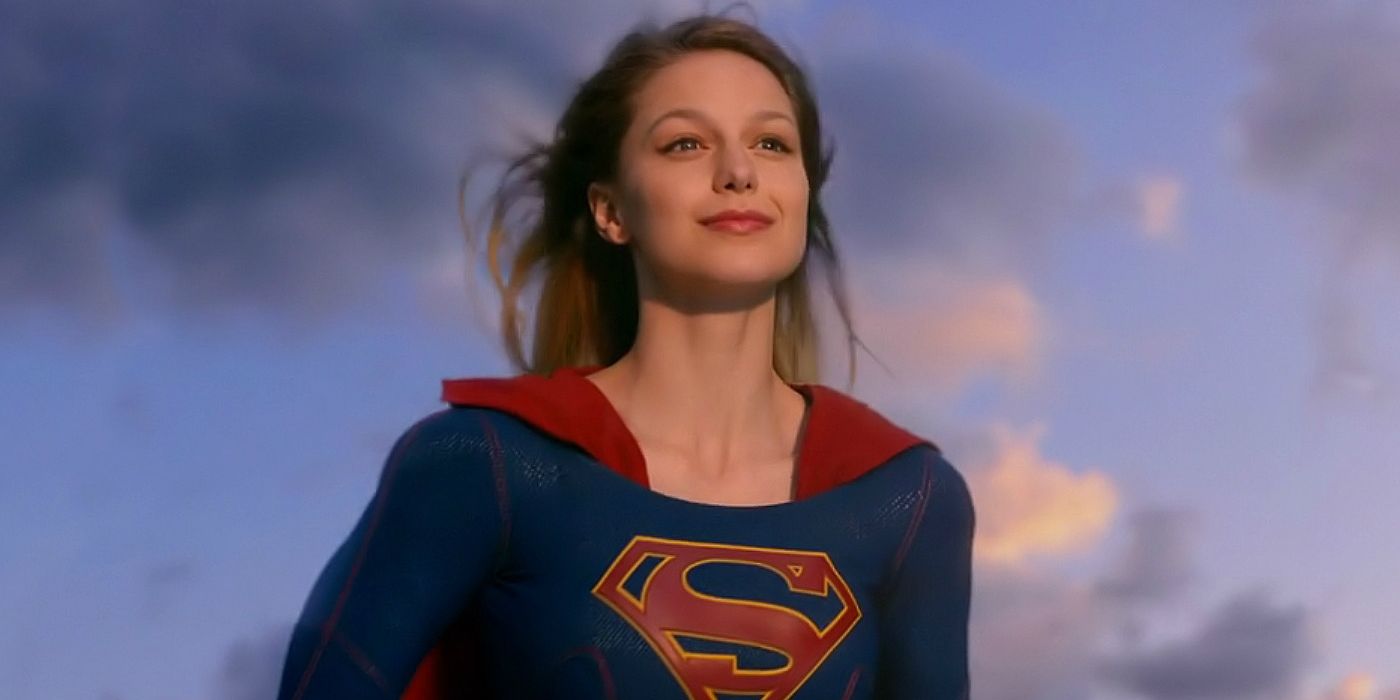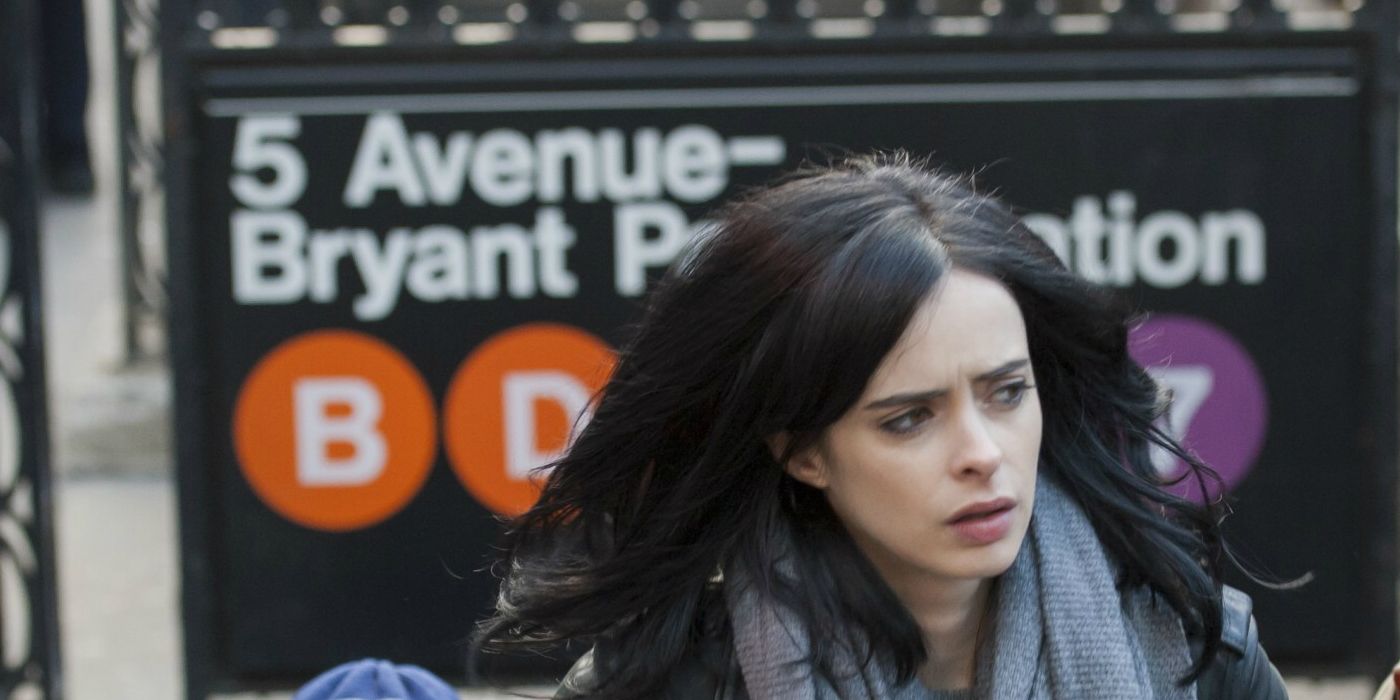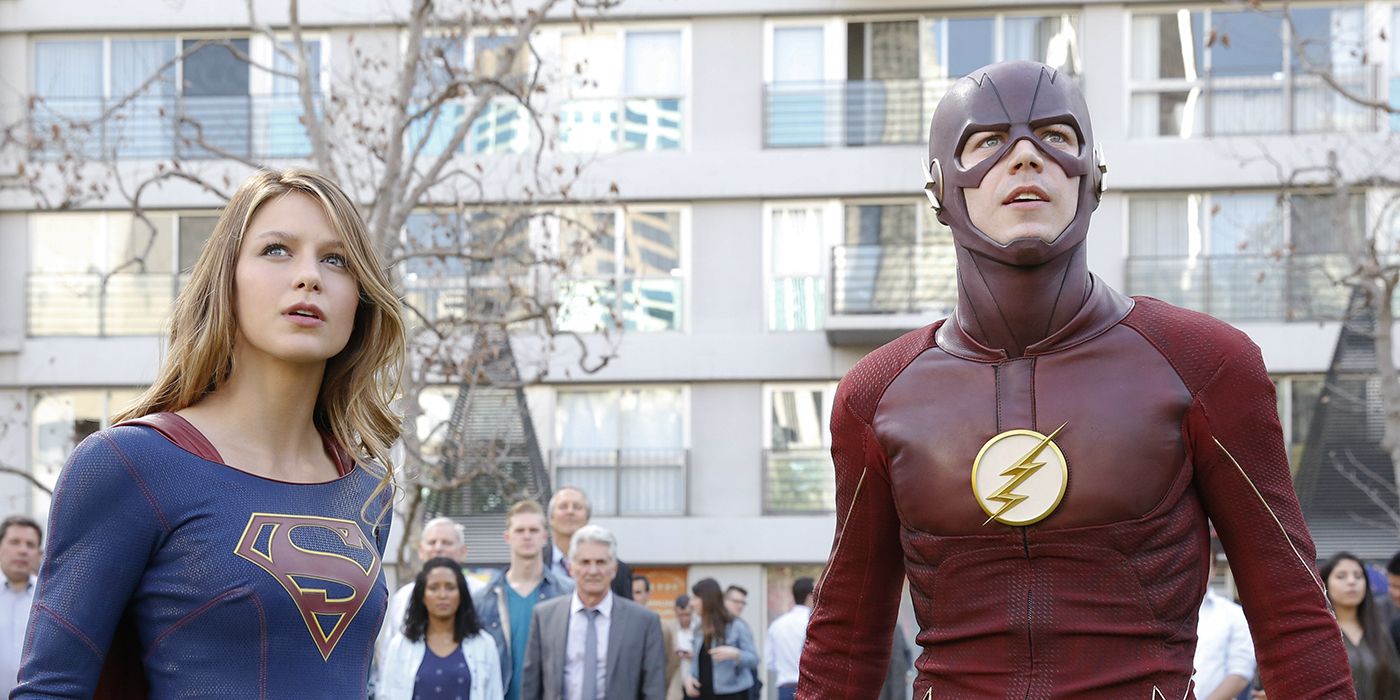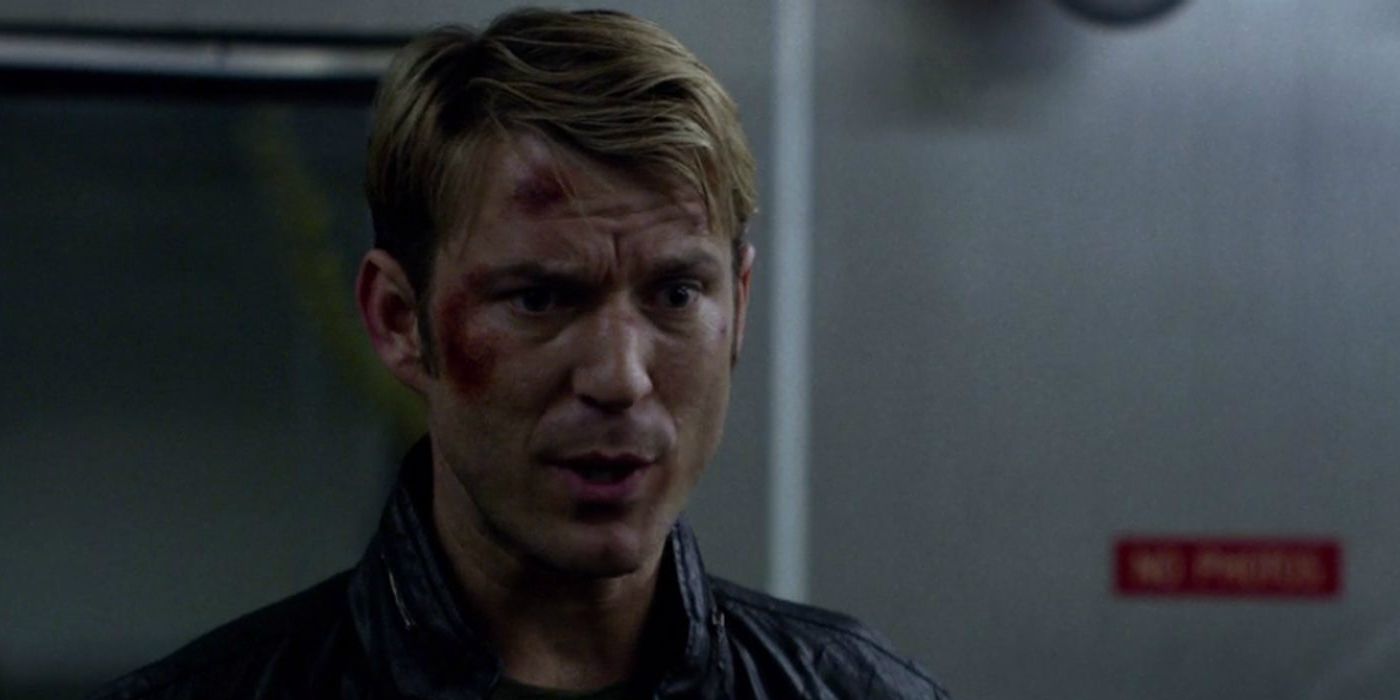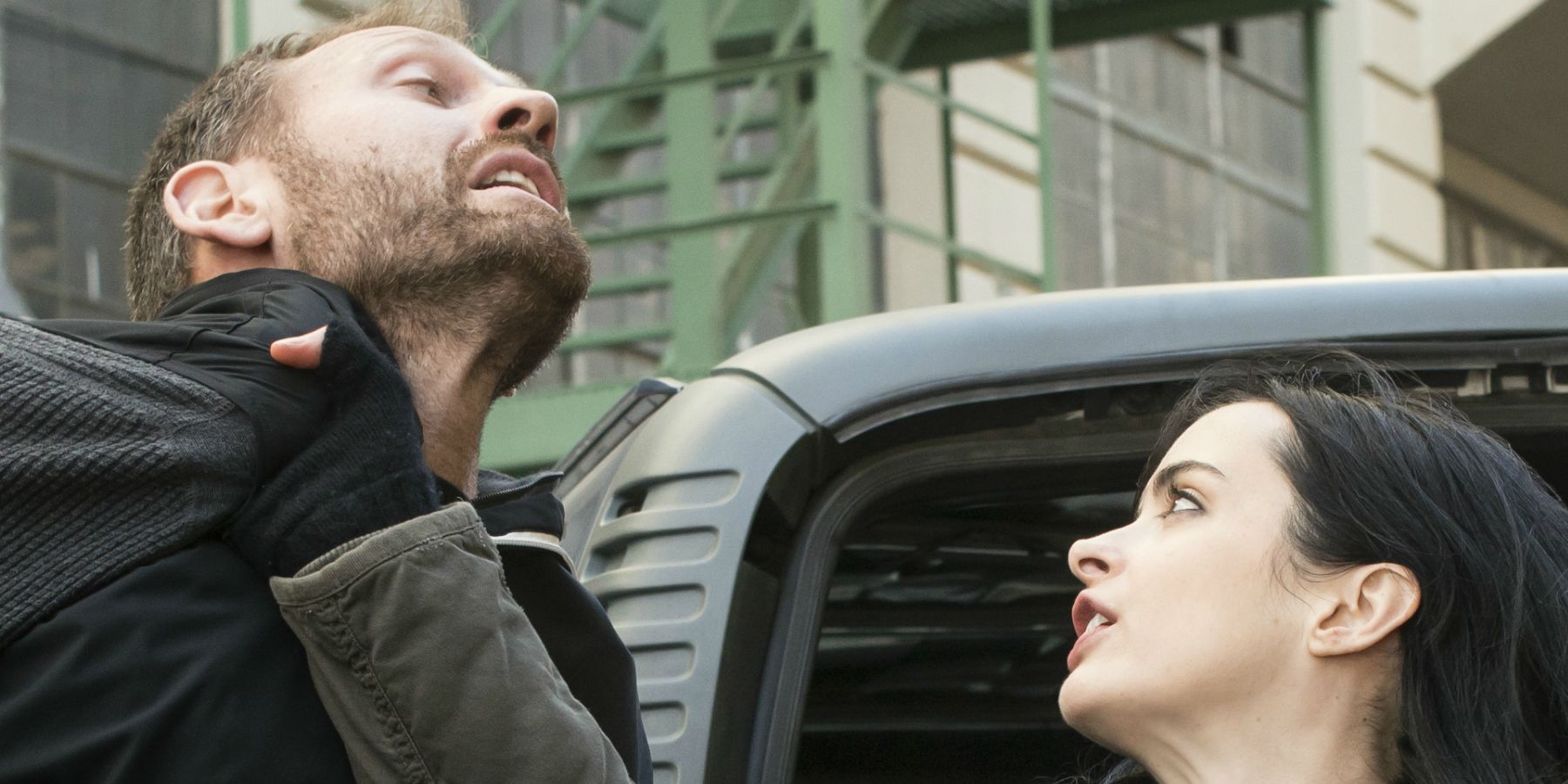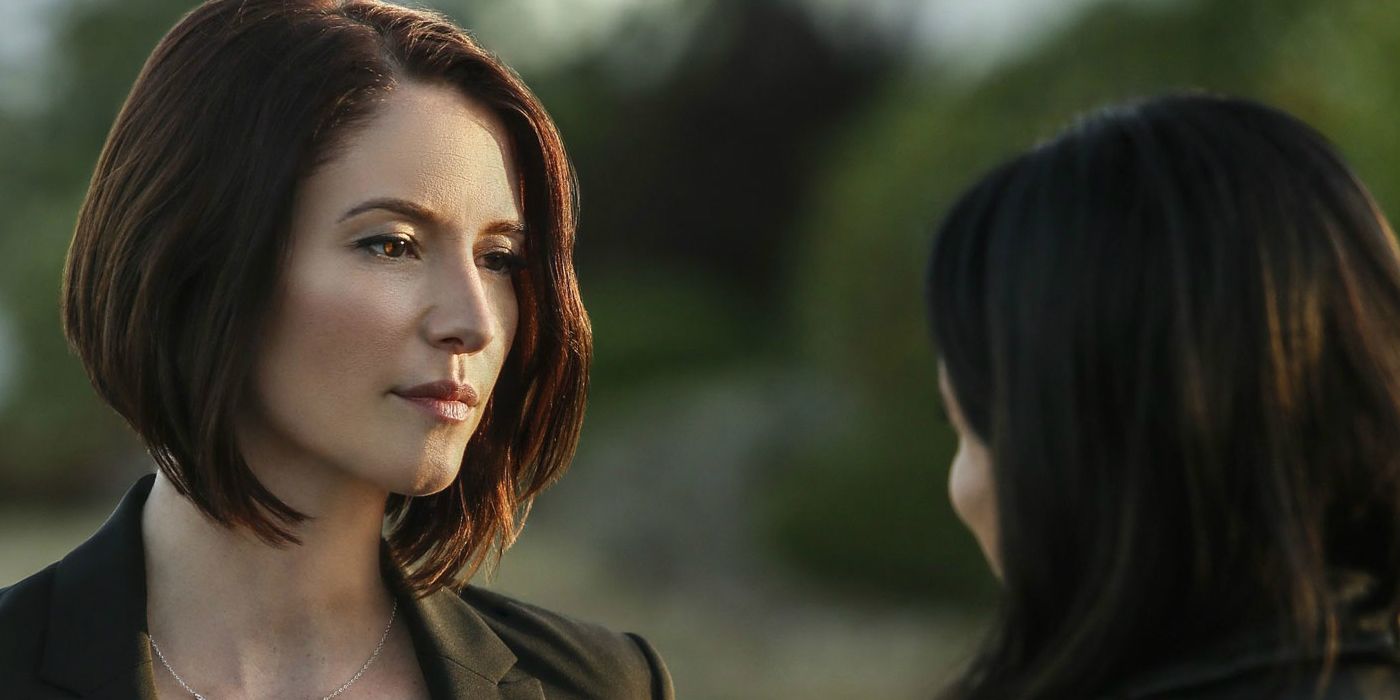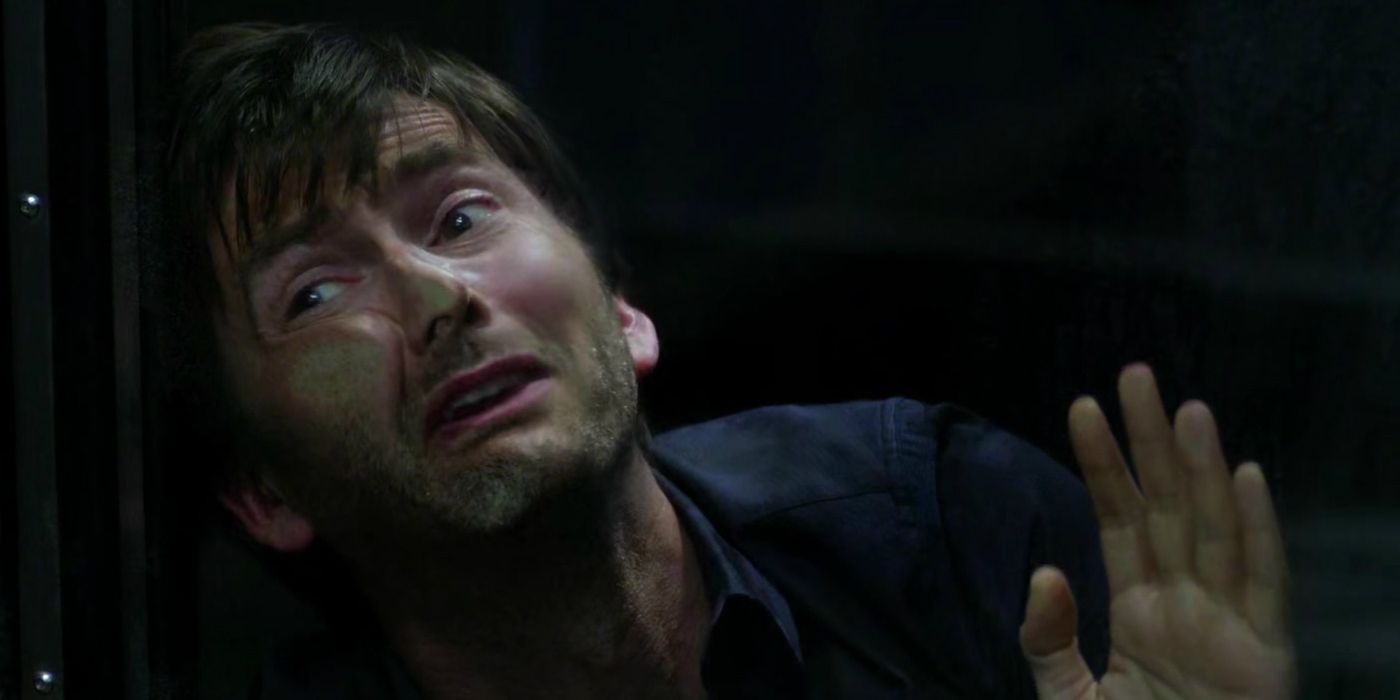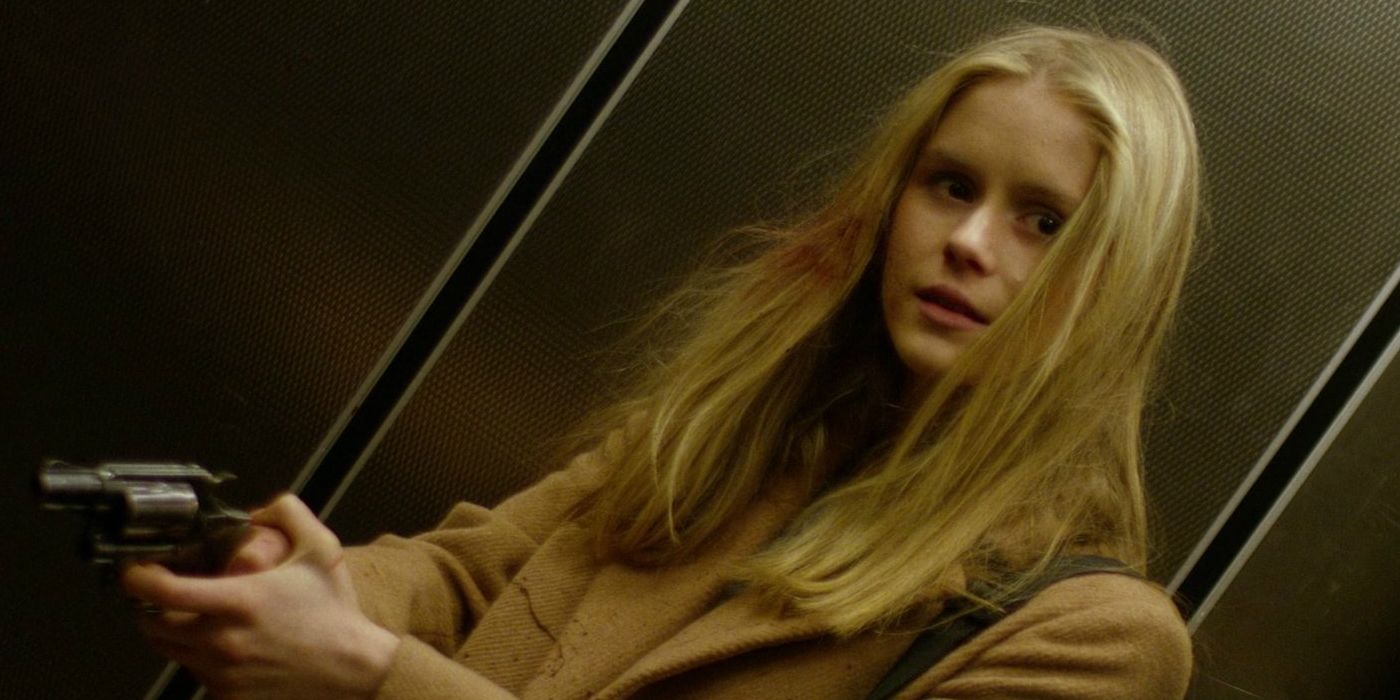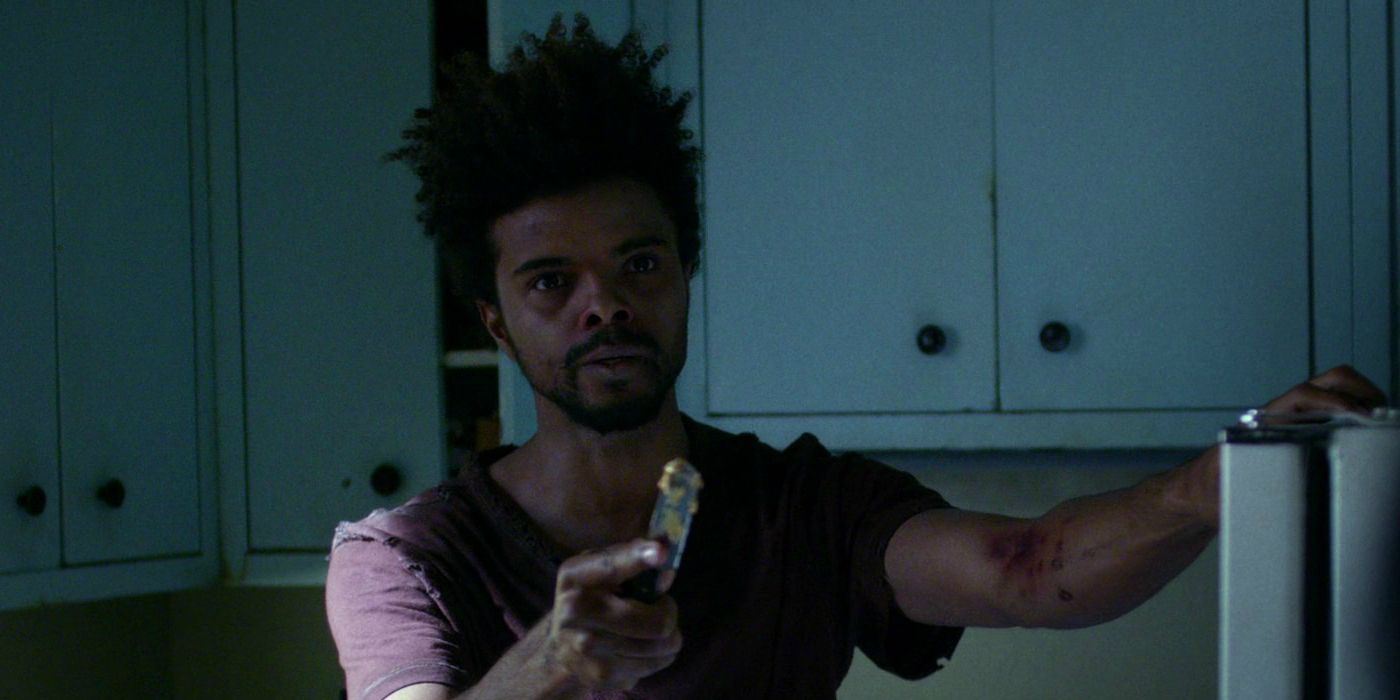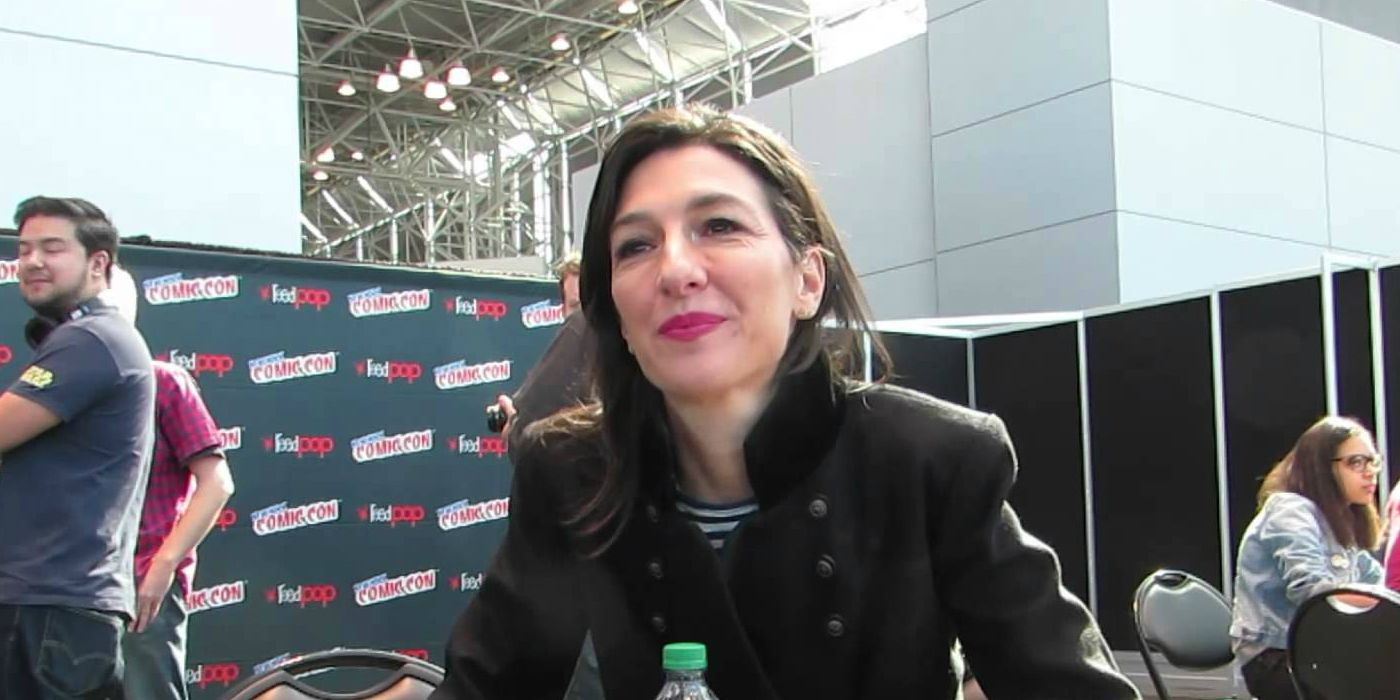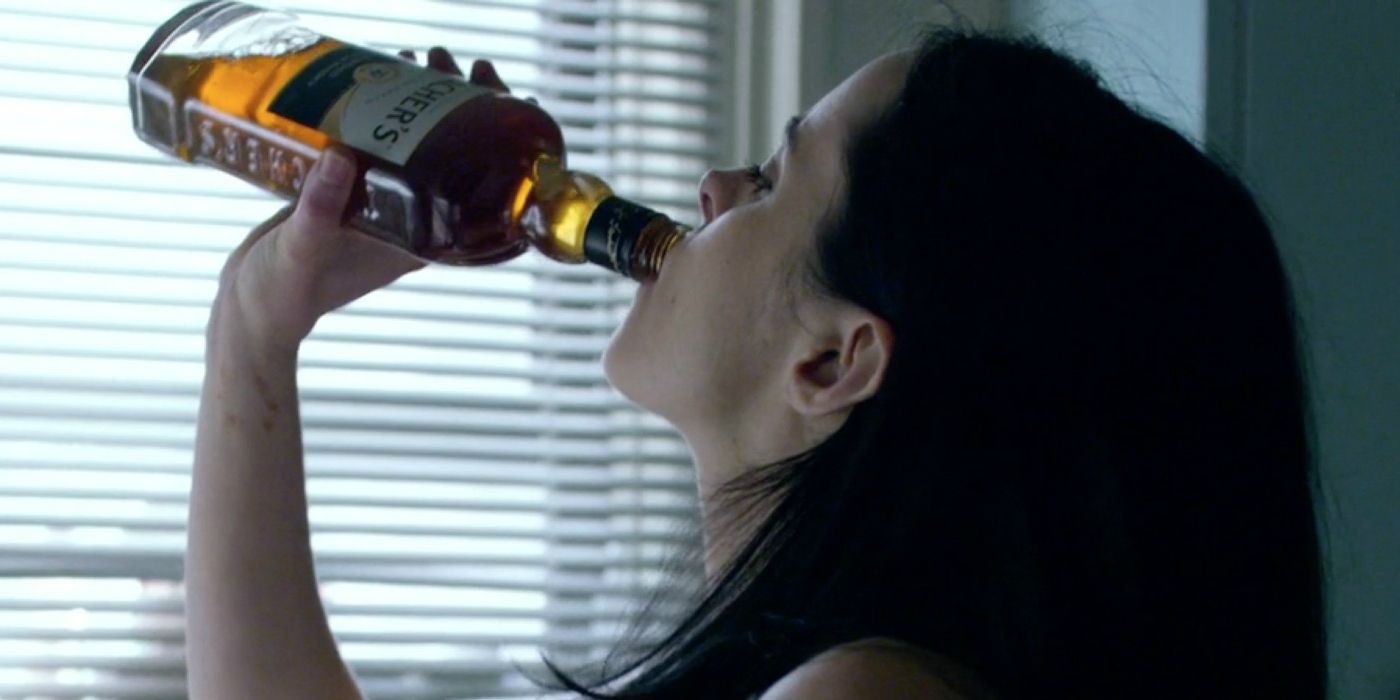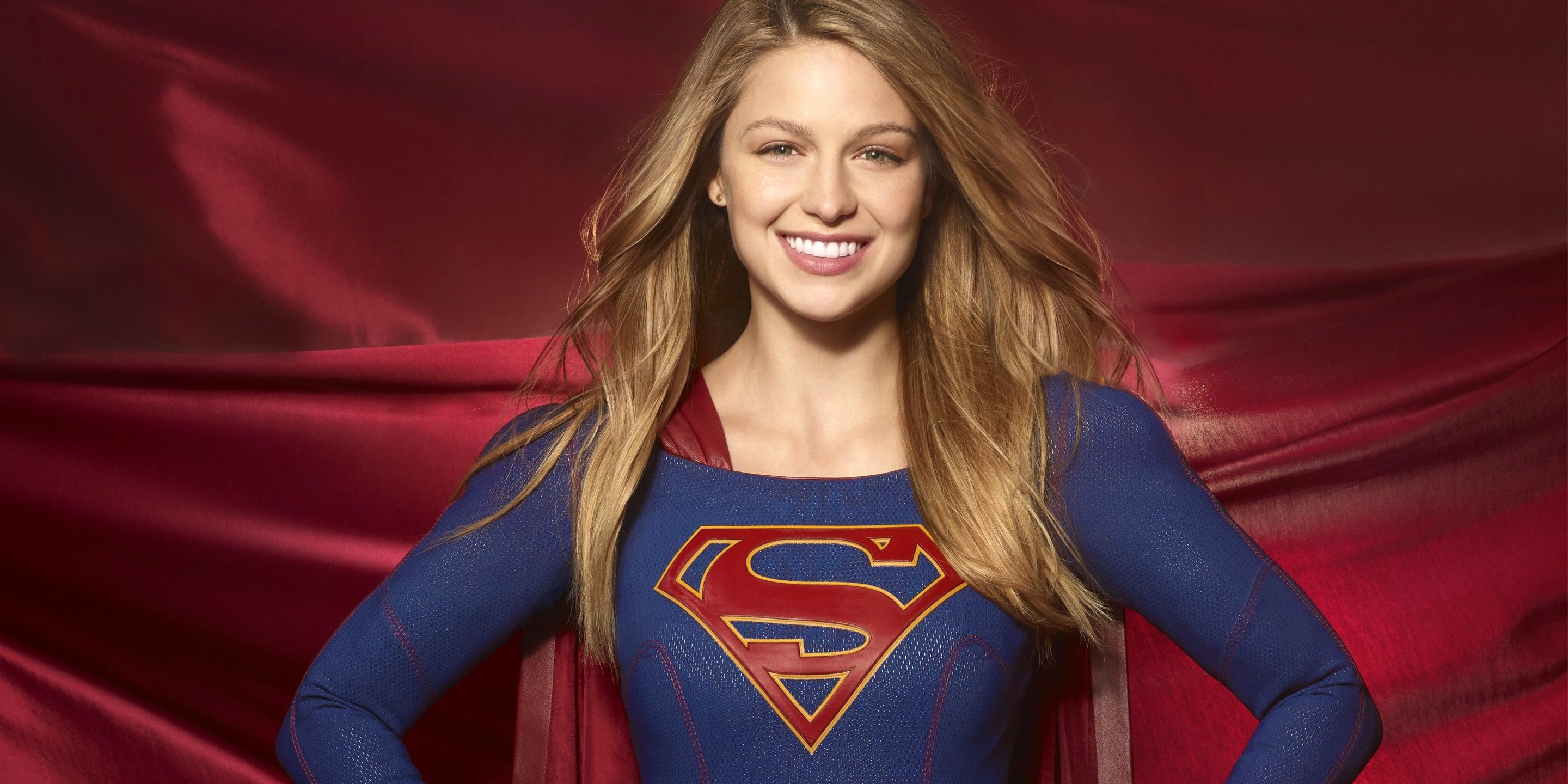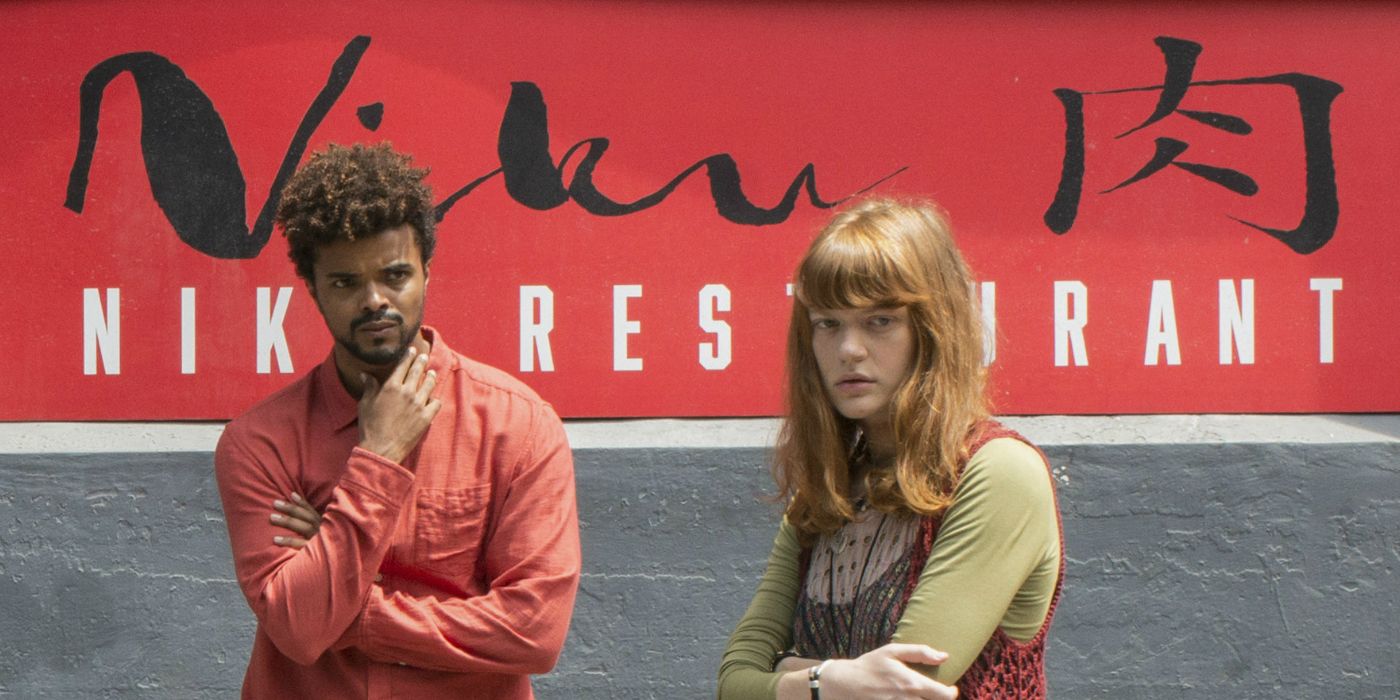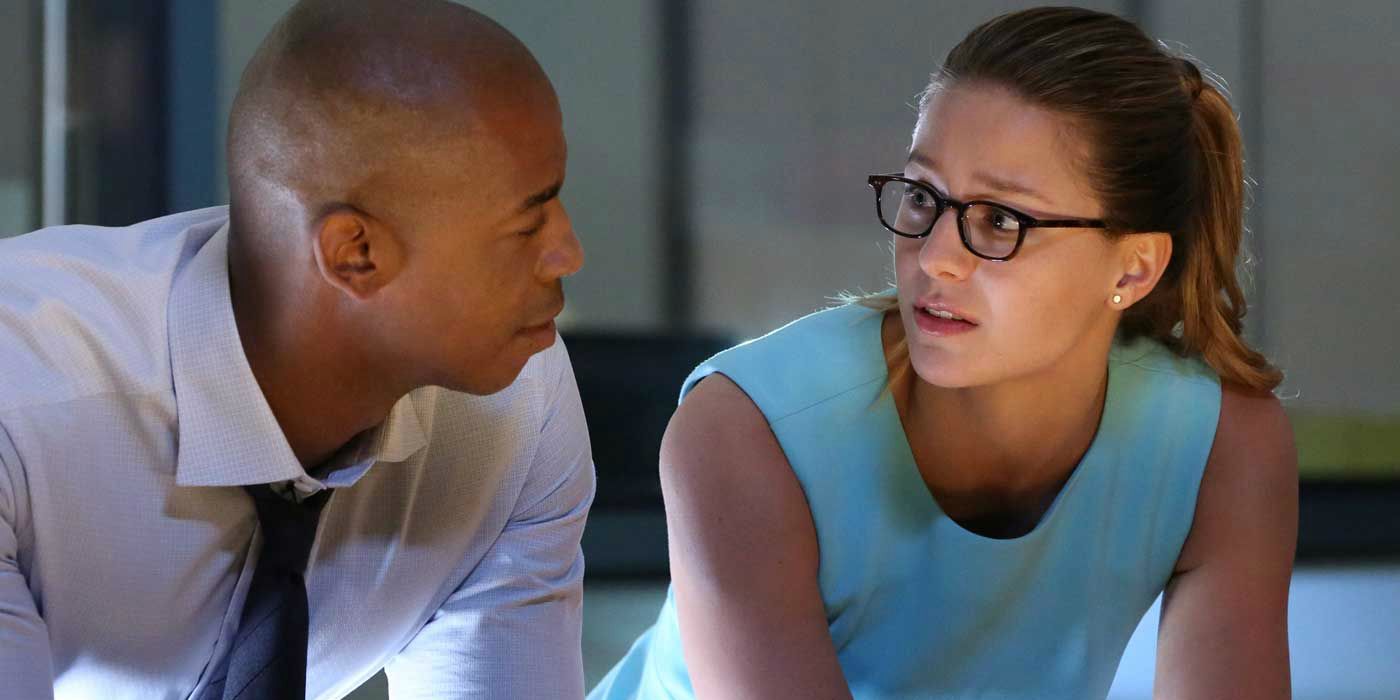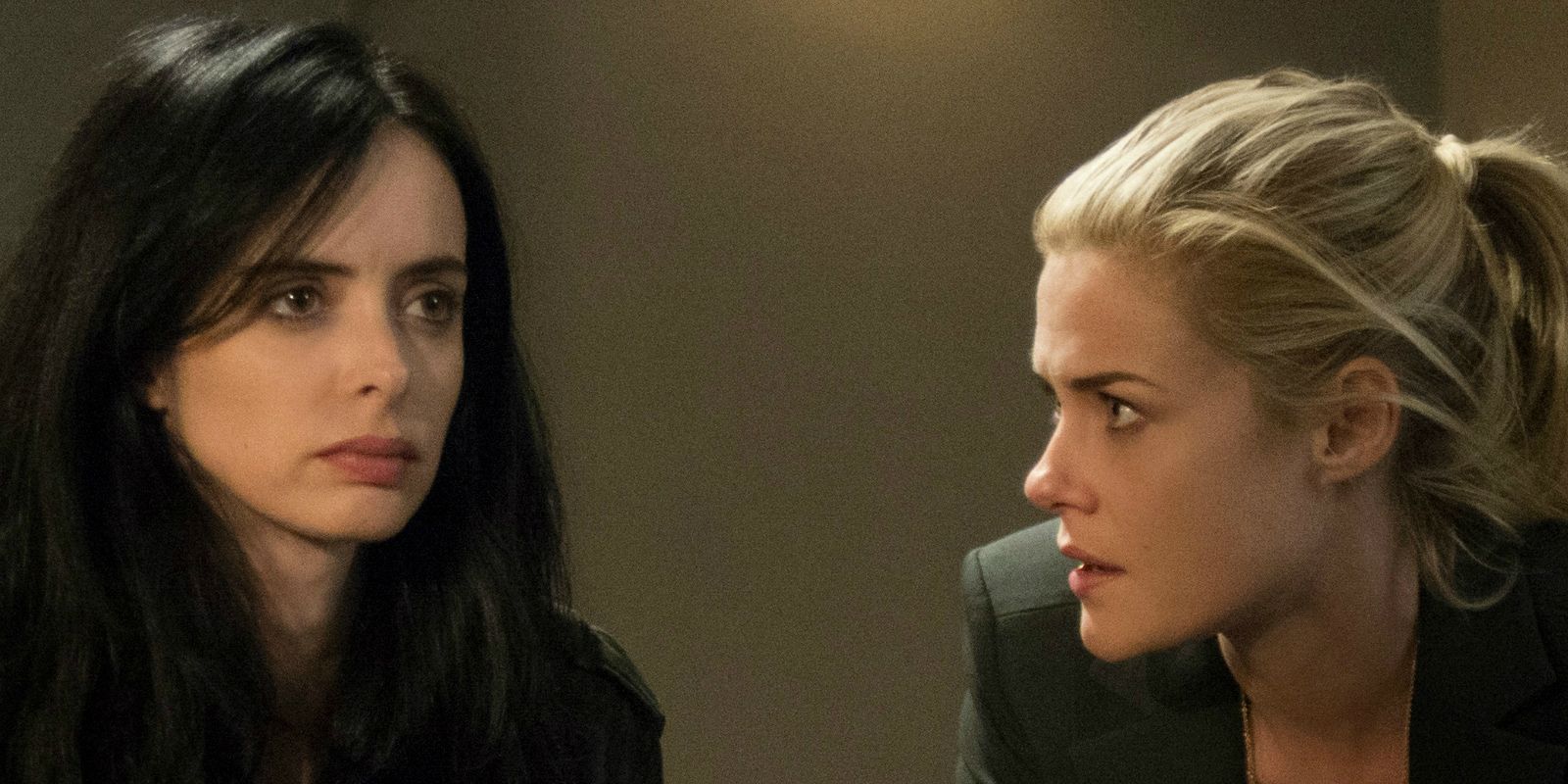It's Women's History Month and here at CBR, the month wouldn't be complete without looking at female superheroes. There hasn't been a decent female-led superhero movie since...well, pretty much ever. Television, on the hand, has been having much better luck. Girls are kicking away all kinds of stereotypes about whether shows with strong female leads can bring in the ratings.
RELATED: 15 Reasons Angel Was Better Than Buffy The Vampire Slayer
Since "Supergirl" and "Jessica Jones" both premiered in the fall of 2015, comparisons at the outset were inevitable. Hindsight is 20/20, though, and "Supergirl" proved to be the superior while "Jessica Jones" has quite a few things to improve upon. In order to be fair, these critiques and praises will be based on the freshman seasons of each show, with one exception that will be discussed later on.
WARNING: The following article contains spoilers for both "Supergirl" on the CW and "Jessica Jones" on Netflix.
15 NO SUPERFLUOUS LOOSE ENDS
This is a big problem that Marvel continues to have - the unanswered questions about a character's past or the world that the writers are building. However, the questions "Jessica Jones" leaves behind are actually pretty basic to Jessica's development. This is especially important in a show where a traumatic event changes the entire trajectory of a character's life. Information like how Jessica got her powers and what happened when she first tried to be a hero give the audience a foothold on how drastically Kilgrave changed Jessica's life.
"Supergirl," on the other hand, completely avoids this problem. If a mystery is alluded to (like Hank Henshaw's real intentions), then it's brought to fruition before the season's end. The only question that's really left unanswered at the end of season one is who was in the pod that crashed in the finale. However, since that happens in the final seconds, it's less of a loose end and more of a cliffhanger.
14 NO DISTRACTING TANGENTS
"Supergirl" keeps the lead's secret identity firmly under wraps, so the focus of the story is given on the four people who actually know who Kara Danvers is. These characters are almost always a big player in the overall story, so the plot keeps moving forward without making pit stops. When there are stories that throw a curveball into things, like when the Flash randomly popped up in her universe, it only takes a scene or two to establish why and how the curveball exists before it actually serves to advance an episode's plot and/or a character's development.
"Jessica Jones" could really learn from this. Scenes with the support group of Kilgrave's victims, Robyn or Trish's mother all seem like unnecessary filler. Having a moment where the plot takes a breath wouldn't be terrible, but they don't do much to help the show's themes or tone either. The audience ends up feeling like they're babysitting unimportant characters while the important ones do dangerous work. That's just boring.
13 WILL SIMPSON IS USELESS
Will Simpson is a victim of Kilgrave's control, just like Jessica was, but he turns dark in one of the most baffling twists in recent memory. He starts off all right, a police officer who believes he killed Trish, but realizes he'd been tricked by Jessica. He then goes on a mission to redeem himself, especially to Trish. However, his latent rage issues turn him to a horrifying monster just like Kilgrave.
This arc reinforces the idea that all men are attackers waiting to happen (more on that later), and only serves to gum up the works of the plot long enough to have a full 13-episode long season. These characters should be operating at the height of their intelligence. Writers shouldn't rely on hanging a millstone around these characters' necks, and instead write meaningful action to bring about the necessary conclusion.With a stretch, Simpson could be considered a parallel to Kilgrave's abusive boyfriend plot. Then the problem becomes Kilgrave already being so despicable already, that creating another version of him borders on exploitation.
Needless to say, no such character exists on "Supergirl," and for good reason.
12 MEN ARE ALL THREATS ON JESSICA JONES
Violence against women, especially that which is perpetrated by men, is an incredibly heavy topic and one that's important to discuss. Victims of such crimes should have their stories told. However, "Jessica Jones" leans far too heavily in the direction of having all male characters being threats lying in wait. Even Malcolm, who doesn't outright attack women like Kilgrave, Simpson, and Luke Cage, are still revealed to be working toward Jessica's downfall in some way. It's like there isn't a single male character portrayed as being worthy of trust. Even when Detective Clemmons and Reuben are showed in a marginally positive light, they are brutally killed off in order to feed the dark tone of the show.
Maybe it's not fair to hold a television show to the standard of helping the healing process of abuse victims, but in any case, the way men are characterized on the series isn't going to help anyone.
"Supergirl," meanwhile, manages to show villains and heroes on either side of the gender binary, with all of them having complex motivations and sympathies. Being on the side of good doesn't make them one-dimensional or without their own emotional baggage, either.
11 POSITIVE LGBTQ+ REPRESENTATION
Comparing the LGBTQ+ characters of "Jessica Jones" to "Supergirl" might be a stretch since Alex Danvers didn't come out until season two. Nevertheless, that retroactively makes Alex gay in season one and therefore it counts. Chyler Leigh did an amazing job handling a story about a woman who discovers her sexuality later in life, and being completely supported.
However, the love triangle of Jeri Hogarth, her wife Wendy Ross and girlfriend Pam on "Jessica Jones" tends to reinforce ugly stereotypes about lesbian relationships. Jeri takes advantage of her position of power and begins an affair with Pam, making Wendy feel exploited and used after she supported Jeri through law school. This reinforces the ugly cycle of exploitation that echoes throughout the show.
Furthermore, when Susie Abromeit was asked about Pam's backstory, she said "when I was diving into Pam’s character, I just felt like I think there was some sort of abuse—maybe like her stepfather took advantage of her..." This remains unconfirmed by the show canon, but it does reinforce the stereotype that lesbians are all women who are victimized by men.
10 KILGRAVE'S PORTRAYAL OF VICTIMIZATION
A common rule of thumb when writing complex villains is making them sympathetic on some level. In a show that uses an anti-hero, it would make sense that the villain is equally as nuanced...if that villain wasn't an honest-to-God serial rapist. "Jessica Jones" tries to add complexity to Kilgrave's character by making a victim of his parent's abuse and that gave him the power he now abuses.
Writing a victim of abuse that becomes an abuser later in life isn't new (that does happen in real life), but it's the exception; not the rule. If "Jessica Jones" wants to champion for actual victims of abuse, then why did they decide to make that demographic imagine the manifestation of their abusers as a victim too? Even if that's not what the writers are trying to do, the idea of portraying a serial rapist and killer as someone deserving of sympathy seems wrong-headed.
"Supergirl" avoids this by not giving sympathy to it's genocide-inclined characters, while undisputed bad guys like Maxwell Lord are allowed some latitude.
9 EXPLOITATION OF HOPE SCHLOTTMAN
Hope Schlottman is the match to Jessica's gasoline, and is the latest of Kilgrave's victims. It's her case that propels the fight to bring Kilgrave to justice, since she is charged with the murder of her parents (committed while under Kilgrave's mind control). Even her name, Hope, is representative of something Jessica lost but is desperate to save in someone else. It's a powerful foil.
However, the writers do absolutely everything they can to raze this girl's sanity to the ground. Oh, she's raped by a mind-controlling psychopath? BAM, now she's pregnant with his child and needs an abortion. She gets a lawyer on her defense? BAM, she has to go along with an insanity plea in order to be declared innocent. She gets released? BAM, suicide is her only way out. The tragic death of one of Kilgrave's victims was probably inevitable. However, tragedy can be written without stripping a victim's identity character of all dignity.
"Supergirl" managed to create tragedy for its lead character by having her constantly deal with the death of her entire planet, species and family, which is incredibly effective. However, it managed to find a way to do this without bringing every ounce of misery onto the screen.
8 BETTER SUPPORTING CHARACTERS
For the purpose of this comparison, Malcolm Ducasse and Winn Schott will be the case study. They're not the only supporting characters in each show, but also they fulfill the same purpose of being the superhero's friend. At least, a friend that isn't filling another role as a relative or a love interest.
Malcolm is a sweet guy who's stuck in a drug-fueled haze for most of the series, only to be revealed that he was forced to become one in order to be Kilgrave's lackey. However, this turn comes too late to be completely effective. Maybe this dynamic of Malcolm trying to overcome this victimization by pushing Jessica towards being a hero will be explored in season two, but in season one, it feels like the writers ran out of time.
Winn's plot, on the other hand, focuses on him being Kara's best friend and learning to overcome his own issues and insecurities outside of his relationship with her. It's more evenly handled, and sees the conflict between them fully play out and come to a satisfying resolution.
7 BETTER CREATIVE TEAM
Greg Berlanti and Andrew Kreisberg's success for DC Comics properties on the CW network is hard to argue with. Furthermore, executive producer Ali Adler brings experience with other beloved nerd properties, like producing "Chuck" and writing for "Glee." This team has made some of the highest-rated comic shows currently on TV, and lending this weight to a female-led superhero show helped get it's legs.
However, the credits behind the "Jessica Jones" team isn't so starry. Series creator Melissa Rosenberg does have Emmy nominations for "Dexter" up her sleeve. On the other hand, Rosenberg's biggest female-led projects include every "Twilight" film and the poorly received (and remembered) 2002 "Birds of Prey" series on the WB. Granted, it'll never be entirely clear if either of those properties could be saved from themselves. Nevertheless, it's not exactly stellar work to have on one's resume, especially if the newest endeavor is to take a feminist approach to an incredibly volatile source material.
6 YOU CAN BE HAPPY AND POWERFUL
Hollywood has a tendency to pigeonhole female characters into two categories: the sunny, pretty princess incapable of taking care of herself or the grizzled trauma survivor who doesn't need your help, thank you very much. Showing female characters as something other than sweet and somewhat slow is a step towards full representation. However, there is a tendency to have the idea that the only way a woman can be empowered is to suffer massive trauma, and then lean full tilt into violence, meanness, and hard drinking. Sound familiar?
Jessica's sarcasm and terrible coping mechanisms make for good television, but it is concerning that the first major critical success for Marvel's female-led properties is the one who's trying to recover from abuse. It would be better if the audience saw something of how Jessica was trying to come into her power before Kilgrave, but that's something to which the audience is never privy.
"Supergirl" shows a great range of female characters from sunny to diva to dictator, while making all of them all alternatively sympathetic or despicable. They are all flawed, but the name of the game is "variety."
5 MORE EFFECTIVE THEME
Comic books are escapist literature. The best of them endeavor to give hope and inspiration to their readers, and so the themes of their adaptations need to be carefully honed.
"Supergirl" has the advantage here, because it's not required to explore the darkest parts of human nature, and it's able to see the best in people without endangering its tone. The theme of "Supergirl" is self-actualization through self-sacrifice. The characters become better when they are at their most empathetic and thoughtful of others. It's a message that resonates with the audience and gives hope.
"Jessica Jones" fails because the thematic material doesn't allow for the dark impulses of people to be balanced by the light. The theme of "Jessica Jones" is that everyone is in a perpetual, vicious cycle of exploitation, and the only way to break that cycle is to destroy your own exploiter through violence. The darker side of that theme is to accept that one's own happiness comes at the expense of others, and that doesn't have to be true.
4 BETTER TONE CONSISTENCY
The place where "Supergirl" and "Jessica Jones" divide most sharply is tone. "Supergirl" is a coming-of-age origin story for a young woman who must make her own mark apart from an older generation. "Jessica Jones" is a dark, noir, detective story about exploitation and recovery. The fact that the stories are both based on comic books is almost incidental.
That doesn't mean comic book silliness is able to be kept up entirely. The lighter moments like when Trish and Jessica talk about Jessica's early attempts at a costume seem drastically out of place in the tone of the show. They're a necessary breather, but without seeing more of who Jessica was before Kilgrave, it's hard to imagine a woman who would willingly wear Jewel's classic blue-and-white costume.
Silliness for Kara and friends doesn't have this problem, since cheesiness and heart are the order of the day. Embracing those essential elements is what makes "Supergirl" far more effective.
3 BETTER LOVE INTEREST DEVELOPMENT
A weird similarity between "Supergirl" and "Jessica Jones" is their mutual decision to have tall, muscular, bald African-American men as their love interests. However, James Olsen's appearance was changed dramatically from the comics while Luke Cage is Jessica's most consistent love interest in the comics.
The proper use of love interests is a hard target to hit, since they simultaneously must prop up the protagonist's development and go through an arc of their own in order to be dynamic. The arc of James Olsen manages this by focusing on the relationships he has in his life, and using them to highlight his own strengths and insecurities. Olsen has a similar problem as Kara (learning to stand outside of Superman's shadow), but he still serves a moral voice that keeps Supergirl on track.
Luke Cage tries to reconcile trauma and his newfound powers like Jessica, but he leaves in the season finale for his own series. He's completely unchanged by these events, and so nothing he does carries any weight.
2 BONDS OF SISTERHOOD
The heart of both of these series is the relationship between sisters: that of Alex and Kara Danvers, and that of Jessica Jones and Trish Walker. In fact, the love between Jessica and Trish save the day in the end. However, this doesn't make up for an entire series of missed marks and inconsistent chemistry between the two women. In order for the last "I love you" Jessica says to Trish at the climax to be a twist, the audience has to doubt the depth of Jessica's attachment to Trish for 13 episodes. Therefore, the audience doesn't have any stable idea about the relationship and can have a hard time relating to them.
Alex and Kara contrast this by not only being foster sisters, but also by being each other's closest friend. They have fights and problems, but no viewer could doubt for a second that they would die to protect each other. This is what makes the fight between a mind-controlled Alex and Supergirl in the season finale so heartbreaking.
1 ARC OF THE PROTAGONIST
Kara and Jessica are as different as two protagonists can be, so it wouldn't be fair for their character growth to have them end up learning the same lesson. Kara's goal is to become role model for, and protector of, her city, as well as to live up to the expectations set up for her by Superman's actions. She achieves this by the season one finale. Jessica's goal, meanwhile, is to save Hope Schlottman and defeat Kilgrave, and she only achieves about half of that.
However, Jessica starts the series by making it explicitly clear that she doesn't care about other people's problems and that she doesn't have any business trying to save anyone. She ends the series with pretty much the same opinion, if maybe being a little warmer to the idea of helping people. She isn't required to demonstrate much growth as a person, so her triumph in the season has to be exacting revenge on her abuser by overcoming a physical disadvantage. It's not because she learned something, but finally decided to do something that the plot needed her to do because it's time to wrap things up. The emotional ending of "Jessica Jones" season one isn't something that's earned across its 13 episodes.
Let us know in the comments if you also prefer "Supergirl" over "Jessica Jones" or if you think this list got it wrong!

